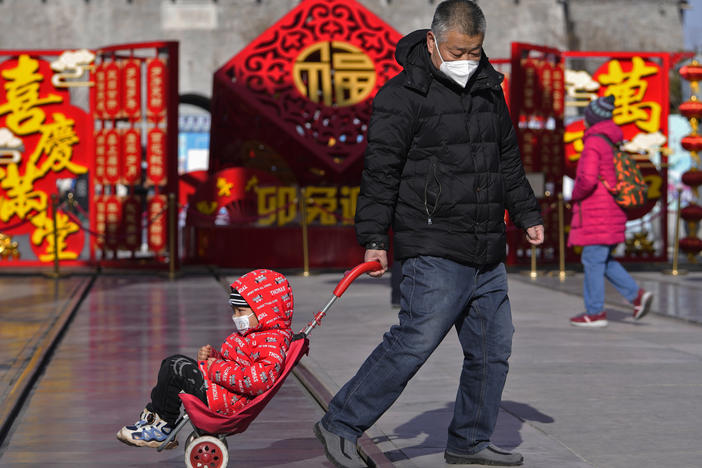Football Fridays Game of the week | Playoffs Rd 2- Lowndes at Buford - At 7:30 P.M.
Section Branding
Header Content
Confronted By Aging Population China Allows Couples To Have 3 Children
Primary Content
Facing a declining birthrate, China will allow married couples to have up to three children. This raises the previous ceiling of two children.
Transcript
MARY LOUISE KELLY, HOST:
To China now, which less than a decade ago was still forcing women to get abortions if they had more than one child. Now it's reversing course. Today the country's ruling Communist Party announced married couples could have up to three children. NPR's Emily Feng explains why China is relaxing birth limits.
EMILY FENG, BYLINE: For more than three decades, China's one-child policy tried to cap what demographers anticipated would be runaway population growth. That growth never came. In fact, China's 2020 census shows the number of working-age adults declining. Fertility rates are at historic lows. Women just aren't having enough babies to maintain China's current population, hence China's announcement today to, quote, "preserve the country's human resource advantages" by allowing three children. But why does China keep birth limits at all? Why not just let people have as many children as they want?
MEI FONG: Bureaucratic inertia.
FENG: That's Mei Fong, who wrote "One Child," a book on birth restrictions in China.
FONG: They had 30-plus year population planning in place. In order to enforce that, they have built up a huge bureaucratic infrastructure. To dismantle that in a hurry is just simply not possible.
FENG: That's why allowing three children is a major reversal of policies that, up until a decade ago, still allowed officials to hunt down millions of women and force them to abort their baby or publicly track a woman's menstrual cycle. In 2016 China allowed families to have two children. But up until last year, couples were still getting fined thousands of dollars for having three children, which suddenly is now encouraged.
FONG: That's the thing. I think about all these women now that I spoke to who had, you know, been forcibly sterilized or had forcible abortions. And I can only imagine the deep bitterness and sadness.
FENG: It's also not clear whether this sudden change in policy will encourage couples to have bigger families. Rising child care costs and growing workplace discrimination against new mothers means China's birthrate will likely stay low.
Emily Feng, NPR News, Beijing.
(SOUNDBITE OF ASO'S "UR OK") Transcript provided by NPR, Copyright NPR.
Bottom Content



